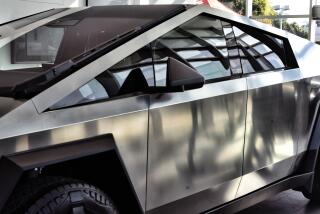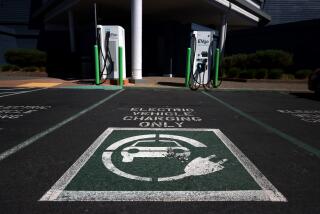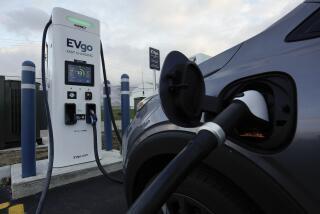Volkswagen’s 2013 diesel-vehicle sales to top 100,000: Why it matters
Volkswagen Group of America will easily clear sales of 100,000 diesel vehicles in the U.S. this year, marking a milestone for both the German carmaker and the auto industry.
Although diesel engines date back to the dawn of the automotive age, it’s a technology that American consumers have never taken to. Credit their memory of an older generation of smelly, smoky and hesitant diesel cars.
But by building a generation of fuel-efficient, clean and quiet turbo diesels with lots of zip, and making a diesel an engine option in almost every vehicle VW and its luxury Audi brand sell here, the German company has become a pioneer for the technology.
Top 10 cars with lowest sticker price per mpg
Sales of diesel cars now account for almost a quarter of Volkswagen Group’s U.S. sales.
“VW’s sales mean there are 100,000 people who have friends and relatives who ride in the cars and learn that diesel has really evolved,” said Karl Brauer, an analyst with auto price information company Kelley Blue Book. “That creates a word of mouth that is growing sales of diesel cars.”
That first-hand experience is important because the diesels sold in the U.S. decades ago were so bad, Brauer said.
Volkswagen says its diesel lineup delivers up to 30% better fuel economy and 12% to 30% lower carbon dioxide emissions than gasoline engines. And the cars don’t require a charge or any special behavior, with one exception: Consumers need to make sure that they put diesel, not gasoline, in the tank or face a costly repair.
Diesel cars will grow to nearly 10% of all new-vehicle sales in 2018, said Jesse Toprak, an auto industry consultant.
Already GM has introduced a diesel version of its Chevrolet Cruze compact sedan. Mazda is about to launch a diesel version of its Mazda6 family car and several automakers are planning diesel versions of trucks and SUVs.
Diesels are popular elsewhere, accounting for about half of European sales, Toprak noted.
But others believe the technology will at best remain a small slice of the U.S. market.
The diesel Cruze, for example, has not caught on, said Dave Sullivan, manager of product analysis for AutoPacific Inc., a consulting firm.
Higher prices for diesel cars and for diesel fuel hold back sales of the vehicles, Sullivan said.
Diesel fuel can cost 40 cents to $1 per gallon more than regular gasoline depending on the region, although in California the cost difference can be narrower and at times diesel is less expensive than gasoline.
And a diesel vehicle’s purchase price can be $2,000 to $3,000 more than that of a comparable gasoline-powered auto.
“The business case just isn’t there if gas prices stay around $3,” Sullivan said. “There are cars getting diesel-like fuel economy now. Look at the Fiesta three-cylinder, the Mazda3 and the new Nissan Rogue. They are all very impressive.”
VW is out in front of automakers because it has focused on building diesels that satisfy a niche of buyers -- what Sullivan calls “a cult-like following” -- who like the torque and fuel economy of VW’s cars.
ALSO:
Mary Barra’s rise from GM intern to chief executive
Ford unveils sixth-generation Mustang for 50th anniversary
Hyundai, Kia reach $400 million settlement in inflated MPG claims case
Follow me on Twitter (@LATimesJerry), Facebook and Google+.







